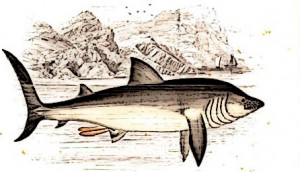WildEarth Guardians submits petition to list the whale shark under ESA
 Press Release
Press Release
WildEarth Guardians
December 21, 2012
——————————
Advocates Seek Endangered Species Act Listing for Ocean’s “Gentle Giants”
Whale Sharks Threatened by Fishing, Pollution, Habitat Destruction
Contact: Taylor Jones (303) 353-1490
Washington, DC – WildEarth Guardians submitted a petition to the National Marine Fisheries Service this week seeking to list the whale shark (Rhincodon typus) as “threatened” or “endangered” under the Endangered Species Act (ESA).
“Encounters with whale sharks are prized by divers because of their incredible beauty and size and their docile nature,” said Taylor Jones, Endangered Species Advocate for WildEarth Guardians. “We are driving the largest, and perhaps the gentlest, fish in the ocean to extinction, and that is a tragedy.”
Whale sharks are sparsely distributed in tropical and warm temperate seas, except the Mediterranean. The species is highly migratory and tends to congregate in different areas at different times of the year, possibly following the growth of plankton and other small organisms that are their primary food-source. The whale shark is one of only three species of filter-feeding shark.
The International Union for Conservation of Nature (IUCN) lists the whale shark species as “vulnerable” on its Red List, but the designation offers no regulatory protection. Whale sharks have very high commercial value in international trade; they are known as “tofu sharks” because of the consistency of their flesh. Their large fins are also valuable in the shark fin trade. Because they are so large and spend much of their time near the surface of the water, they are easy targets for fishers. They are also threatened by purse seine fishing, which involves setting a net around a large fish or mammal in order to catch the smaller fish that gather underneath them. This practice has been used extensively to capture tuna that school under whale sharks and led to the reported deaths of at least 50 whale sharks in 2010 and 19 in 2011.
Whale sharks are losing coral reef habitat to coral bleaching and other impacts of climate change, and losing coastal habitat because of “dead zones” caused by run-off from urban and agricultural pollution. This problem is particularly acute in critical Gulf of Mexico habitat, where in addition to the above threats, the Deepwater Horizon oil spill occurred during peak season for whale sharks, in the vicinity of as many as a third of the area’s tracked specimens. Whale sharks using this important habitat may experience a variety of long-term negative effects, including the absorption of toxic dispersants used to remove oil, suffocation from oil-clogged gills, and negative effects associated with ingesting contaminated prey. Continued oil and gas drilling and exploration in the Gulf poses future threats from oil spills.
Listing species under the Endangered Species Act has proven an effective safety net for imperiled species: more than 99 percent of plants and animals listed under the Act persist today. The law is especially important as a bulwark against the current extinction crisis; plants and animals are disappearing at a rate much higher than the natural rate of extinction due to human activities. Scientists estimate that 227 species would have gone extinct if not for ESA listing. Listing species with a global distribution can both protect the species domestically, and help focus U.S. resources toward enforcement of international regulation and recovery of the species.
Source: WildEarth Guardians
